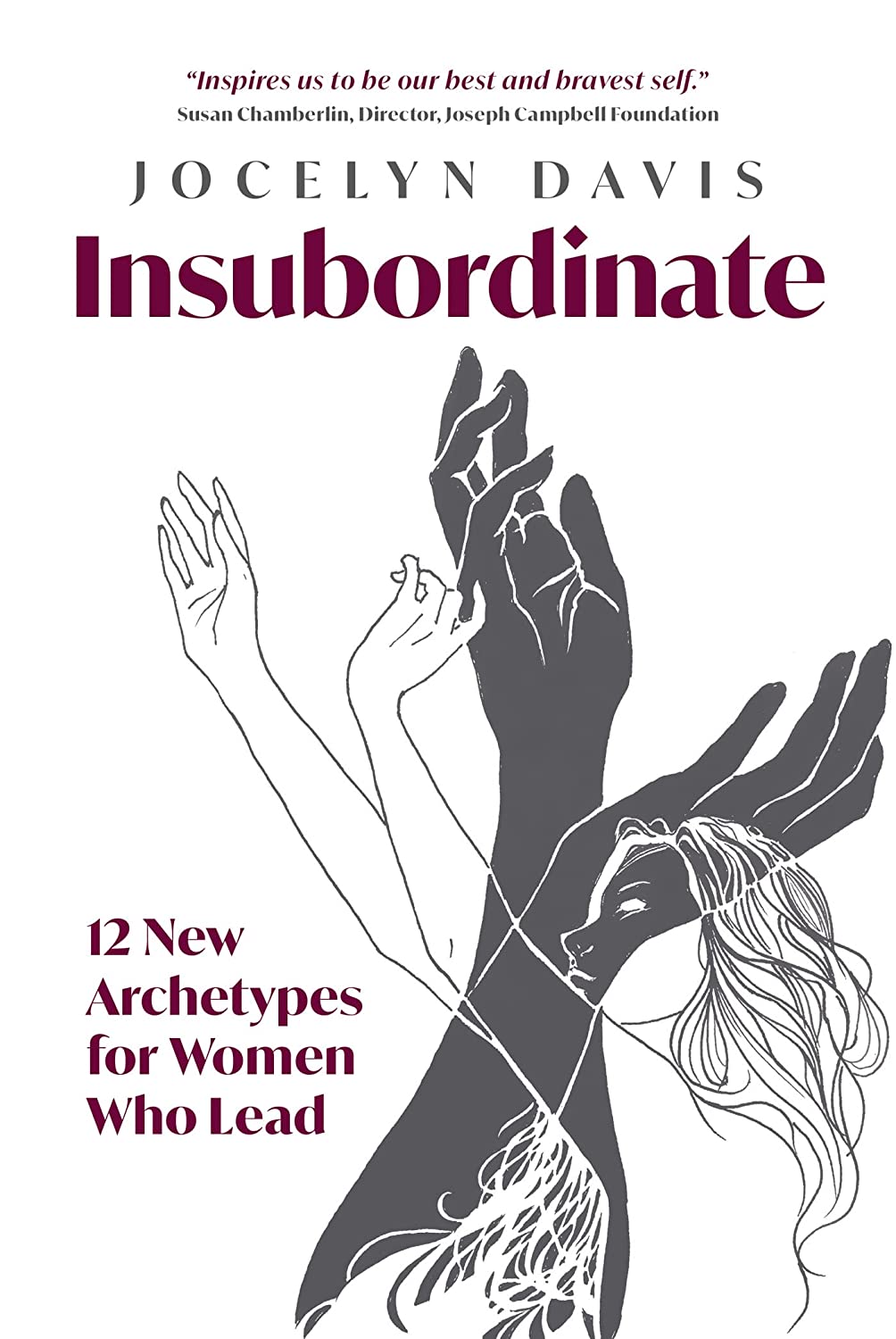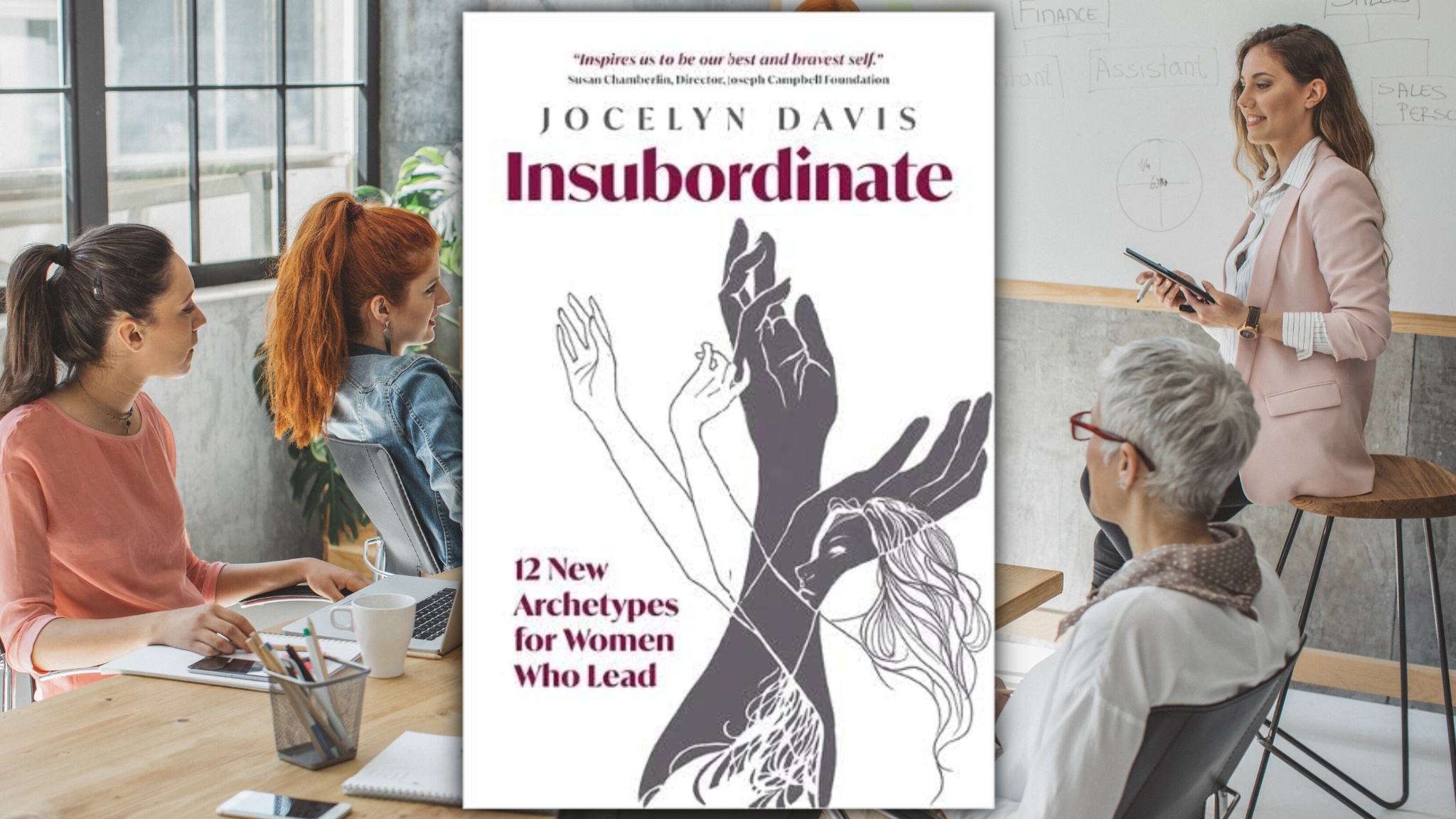Insubordinate by Jocelyn Davis
What's It About?
For ages, labels like these have been used to malign women and deny their leadership potential. Now, we’re reclaiming them.For ages, women have been assigned archetypes, harmful labels, and stereotypes. In her new book, Insubordinate (Amplify Publishing), international leadership expert Jocelyn Davis reclaims the names women have been assigned, transforming them from harmful to powerful.
She opens by describing the ways in which women are discriminated against, especially in the workplace. “Woman is born free, yet everywhere she is in chains: chains of discrimination, violence, abuse, limitation, trauma, self-doubt, self-absorption, fear, anger, shame,” Davis writes.
Aim to please, women are told. Walk the tightrope between competence and likability. Lean into the success that is climbing the corporate ladder. While there can be a power in heeding this advice, there is also a hypocrisy that forces women to demean themselves, to limit themselves. Why should a woman aim lower than her capability in order to be perceived as friendly? Why should climbing the corporate ladder be the only means of success? Why can’t women wear “pink, pumps, and pearls” and still be taken seriously?
Davis emphasizes that for centuries, women have been labeled Witch, Temptress, Snow Queen. And for centuries these labels have harmfully portrayed women, denying them opportunities of their leadership potential. Insubordinate aims to reclaim these archetypes.
The Twelve New Archetypes for Women
Broken up into four quadrants based on combinations of the four classic elements (fire, earth, water, and air), Davis explains the 12 archetypes for women. There is the fire-earth quadrant, consisting of the Temptress, the Amazon, and the Claimant who are strong, passionate women. There is the earth-water quadrant, which consists of the Mama Bear, the Amiga, and the Mesmerist who are “subtle, smiling women, wielding their power softly.”
The water-air quadrant consists of the Empath, the Escapist, and the Snow Queen who are “the cool, crystalline dream girls.” Finally, the air-fire quadrant consists of the Empress, the Jesteress, and the Witch who are the “dedicated achievers and brilliant talkers.”
Reclaiming these Archetypes
Davis acknowledges that readers may be asking themselves, “Aren’t these archetypes really just stereotypes? Worse, aren’t they male-created stereotypes, based on dead men’s dumb ideas about women?” To this Davis argues yes, and no.
Yes, much of literature and religious practice has been controlled by men over the centuries, meaning that literary women are created and shaped by the standards and stereotypes assigned to them by men. The problem is that we tend to view women through the eyes of men. Men have defined each archetype in relation to themselves.
But, if we reclaim these archetypes, Davis argues, they will no longer degrade women, but rather lift them up. She explains that “When we use them to understand our strengths, they help us ply to those strengths” and “When we use them to see options that we haven’t seen, they serve as inspiration to do more and be more.”
Relatable and Accessible Language
Davis writes Insubordinate in a way that is relatable and accessible to all women. With the inclusion of humorous anecdotes from her own career and experienced discrimination, to pop culture references and examples, Davis walks readers through each archetype in a manner that resonates. Though each archetype is different and every woman experiences different struggles and discrimination, Davis manages to pull the experiences of all women and all archetypes together to empower readers.
There are various elements to Insubordinate that are not just language. Davis’ language is accompanied by beautiful illustrations by Inbar Fried, portraying each archetype. There is even a quiz that readers can take to determine their own archetype.
Davis concludes Insubordinate with a list of do’s and don’ts for each archetype, demonstrating that while they may seem like stereotypes meant to keep women subordinate to men, women can take back these archetypes, learn from them, and find power and strength in them. “Woman is born free, and there are a thousand ways to break the chains.”
About Jocelyn Davis:
 Jocelyn Davis is an internationally known author and speaker and the former head of R&D for a global leadership development consultancy.
Jocelyn Davis is an internationally known author and speaker and the former head of R&D for a global leadership development consultancy.
Her previous business books include Strategic Speed, The Greats on Leadership, and The Art of Quiet Influence. Her historical novel, The Age of Kali, has been called “brilliant,” “heretical,” and “deeply moving.”
Jocelyn holds master’s degrees in philosophy and Eastern classics; she loves bringing ancient stories and wisdom from many cultures to bear on modern, practical issues.
She lives in Santa Fe, New Mexico.
Check out Jocelyn’s Author Spotlight on BookTrib here.





